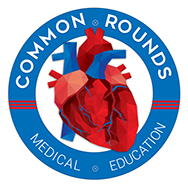Author: Hamed Shahnam
Many postgraduate medical schools around Australia are employing the multiple mini interview (MMI) model. This interview style involves students being interviewed in multiple stations. Each station may have a theme e.g demonstration of leadership, teamwork, problem-solving. Each room will have a station and one or two assessors to conduct the interview. It is a very busy process with lots of potential applicants moving from room to room. However, it is all very well coordinated and timed. In some stations you may be asked to deal with a scenario that involves a distressed person, resolving a conflict or working with others. However the specifics of the stations will vary depending on the medical school.
I really like this style interview as I believe your true personality becomes evident in the way you interact and deal with each stations under pressure. It is very hard to fake a scenario and if you are mean person or have difficulty interacting with people it may become evident. It is also fantastic because if you perform horribly in one station your entire interview is not ruined. You have a chance to redeem yourself in the next station as opposed to the more traditional interview styles. At the Australian National University students undergo two interview processes on the same day. One is the MMI format discussed already.
The second is a PBL type group interaction (refer to our guide for PBL in medical school). This is a fantastic approach to really assess your capacity to work as a team to develop a strategy to manage potentially ethically challenging scenario(s). It is a good guide to how you will interact in PBLs. In these scenarios you want to have a balanced, well thought out approach and don’t want to be overpowering/crowding out other team members. Also avoid expressing extreme views that are emotional and lack evidence. As a doctor you are expected to formulate your advice based on evidence rather than emotions.
Few medical schools still follow the traditional panel interviews, where the applicant sits on front of at least two interviewers and they ask a series of questions. I think many schools are moving away from this interview model in favour of the MMIs for reasons discussed previously. In some of the traditional interview models you may be asked to act out a scenario with one of the interviewers, which adds a slight MMI flavour to the interview process. Furthermore, the interview panel is comprised of a doctor and a member of the community/health profession (such as nurses and allied health). So be really careful when they seek your opinion about other health professionals. Ensure you are not condescending or belittling of other professionals and recognise the important role that allied health professions play in delivering care to patients.
To succeed in the interview be sure to prepare, research and understand the interview process of the medical school you are applying to. There are several medical interview preparation courses that you may want to attend. It could provide further insight into the interview process of your chosen medical school. We can’t recommend a course but ensure you investigate the choice of preparation course as they can be pricey.
